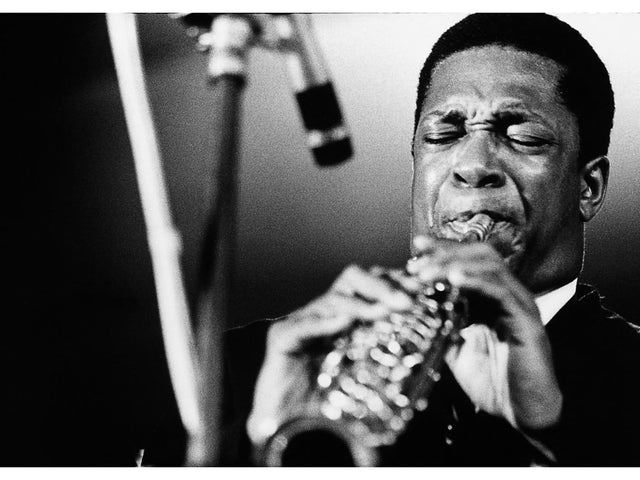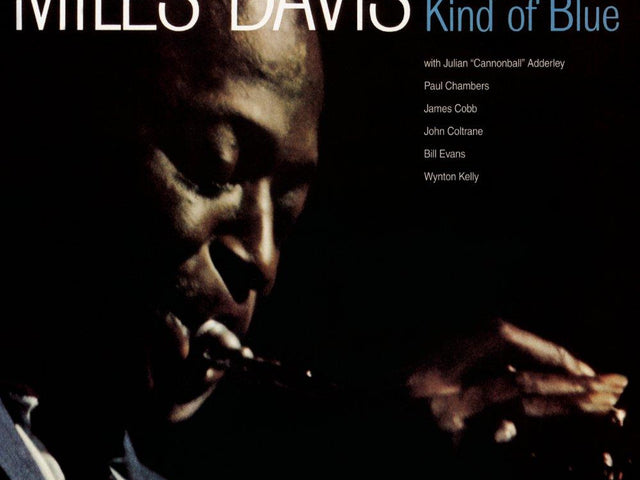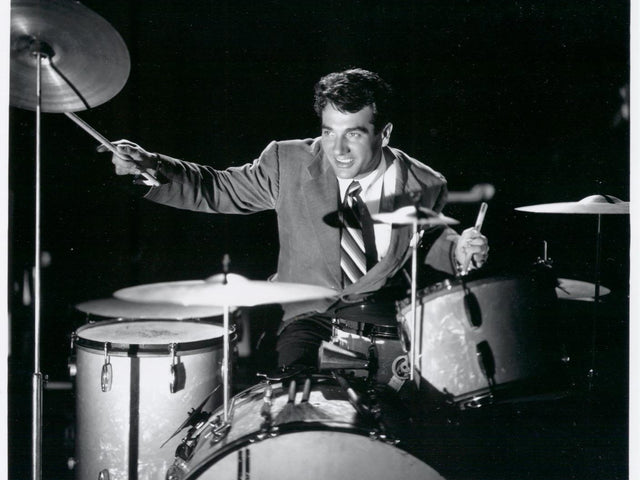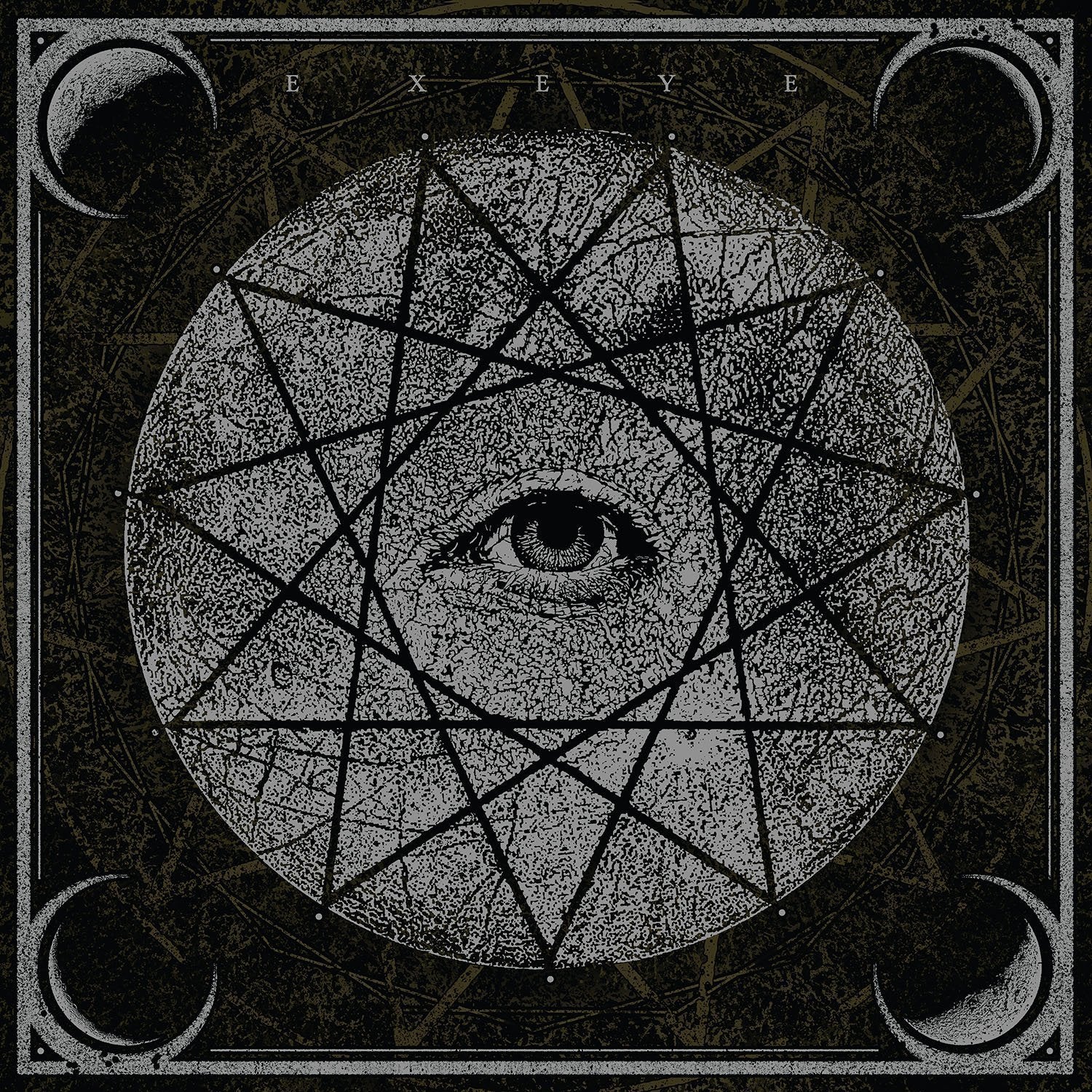We introduce The Reluctant Jazzbo, our new quarterly jazz column--which will round-up new release jazz--via this, the 10 best jazz albums of 2017.
In the summer of 2016, despite a lack of relevant prior job experience, I became the talent booker at a jazz club. And not just any jazz club, mind you, but the hallowed Harlem birthplace of bebop itself.
Like many people who make the mistake of writing about music, I’ve held down day jobs over the years to offset the notoriously low pay and fundamental lack of benefits that come with being a professional critic. Having previously made a fairly honest living in the exciting field of marketing, I made some inroads providing these skills to the New York hospitality industry, working with James Beard nominated chefs at some of the city’s best restaurants to grow social followings, build buzz, and get more butts in seats.
That is how I ended up at Minton’s Playhouse. For those unaware, this is where the giants played, legends like Miles and Monk, Dizzy and Duke, Billie and Ella. Opened in the 1930s by Henry Minton, the uptown club came into its own during the 1940s under the managerial watch of Teddy Hill, who held the position there for close to three decades. Minton’s closed following a 1974 fire that damaged the attached Cecil Hotel, with the space seeing a few rethinks until it reemerged and realigned with its legacy a few years ago under its current ownership.
I’m sure as hell no Teddy Hill, though I did eventually end up rising through the ranks as General Manager of the historic establishment, albeit for a relatively brief run. Yet it was during my time as Marketing Manager that my side gig as a music critic made me a viable candidate to handle the booking of jazz bands. With the invaluable help of the venue’s erstwhile music director and a few good outside talent agents, I oversaw the bookings to the best of my ability for more than a year, familiarizing myself not only with the still-vibrant New York jazz scene but with the genre itself.
Prior to landing the Minton’s gig, my exposure to jazz had been admittedly limited. My parents never owned a Blue Note record, and I didn’t step foot inside a jazz club until after I graduated from college. To me, jazz was a texture applied to other music I enjoyed, sampled by hip-hop and electronic producers for their own purposes. Other than the Afro-Cuban sounds of my grandfather’s house that my father later insisted I pay attention to, the music remained vague to me for some time.
But as a music critic working in a jazz supper club, I boned up. Unlike some other genres I’d immersed myself in previously, from dub reggae to outlaw country, jazz proved dense and daunting. There were a lot of records I heard that I didn’t much like, the sort of stuff you’d find populating a Woody Allen movie, for example. Though I’d long been predisposed to dislike fusion thanks to artists like Steely Dan, my experimental streak led to the free jazz of Ornette Coleman, Eric Dolphy, and Archie Shepp. More inclined to listen to Alice Coltrane than John, I explored fringes and cosmic oddities while simultaneously getting reluctantly acquainted with established classics.
I also spent quite a bit of my time lurking in the city’s other jazz venues, including Dizzy’s and Smoke uptown and Blue Note and Smalls’ downtown. I made it a point to pay homage, witnessing the Mingus Big Band at Jazz Standard and catching veteran performers like Johnny O’Neal around town. I especially enjoyed club hopping, whenever possible, which helped with my own bookings--all now past tense. I don’t work there anymore, so I can’t book your band anymore, sorry.
All of this is to say that I’m not the jazz critic you’re used to, one so well versed in both the historical and technical aspects of the form that he could pick up a trumpet and know what to do with it. Though I’d never say this about the other genres I’ve covered over the last twenty years, when it comes to jazz I can admit I’m an amateur who likes what he hears when he hears it. Chances are, you’re that kind of jazz listener as well, which means this list of the ten albums I dug the most in 2017 may suit you too.
One of producer Terrace Martin’s handpicked To Pimp A Butterfly session players, this West Coast multi-instrumentalist brings a hip-hop flair to his own contemporary jazz record. Adventurous yet accessible, “Mozart Heaven” and “My Mind Is Moving So Crazy” sound like 808s And Heartbreak remixed live in concert. Funk vibes and lyrical bars frequently populate these proceedings as well. “Memories” wraps up all of these complementary styles into a resplendent closer replete with some soaring sax work.
The arrival of the vast ECM catalog on Apple Music and Spotify this Fall made it one of the last of the streaming holdouts to give in to the foremost way people consume music now. Mixed in with the decades deep discography were this year’s offerings, containing this exceptional sextet set replete with an Amiri Baraka tribute. While the pianist has previously recorded for the label in various forms, Far From Over perhaps best demonstrates why he’s so highly regarded in contemporary jazz.

I booked this trumpeter and his group multiple times during my Minton’s run, and one listen to Color Theory should explain why. The date showcases the former Philadelphian backed by his titular ensemble featuring the likes of seasoned pianist Orrin Evans and drummer Anwar Marshall. Together, they balance uptempo delights like “Presence” and “Red!” with smokier numbers “The Conceptualizer” and “Blue.” Both deep and thorough, their Prince tribute “Purple” falls decidedly into the latter category.
One of the most talented singers to grace the modern Minton’s stage, the 2015 Thelonious Monk Institute Competition winner has the chops to enthrall a crowd. On record, Horn delivers that same feel. Her repertoire covers both the sacred and the secular, with one medley in particular magnificently merging Mongo Santamaría’s “Afro Blue” with the spiritual “Wade In The Water.” The scat singing on “East Of The Sun” honors tradition while memorably contributing to the standards songbook.
The fantastic Mr. Greg Fox joins saxophonist Colin Stetson and a handful of talented players for an avant-garde entry into the already wild realm of jazz metal. Where some acts in the subgenre play up their heaviness, Ex Eye instead go further afield on this dense, dramatic debut. One’s expectations get defied almost immediately and then exceeded as the dynamic quartet channels everything from cosmic Coltrane to zealous Zorn in pursuit of a higher calling.
Considerably shorter than the robust and aptly-named The Epic, the latest from the 2010s’ biggest breakout jazz star comes in at a fraction of its predecessor’s length. That relative digestibility doesn’t make this outing any less rewarding a listen, as Washington reteams with many of his West Coast Get Down pals for this philosophical suite of tunes. Along the way, the crew gives smooth jazz a necessary if gentle jolt, culminating with the suitably grand finale of “Truth.”
Even if you’ve never been to a New York City jazz club, this lengthy document culled from the trumpeter’s weeklong run at the legendary Greenwich Village spot will assuredly transport you there, without the inconvenience of cover charges and table minimums. In keeping with the scores of records made in this room, Akinmusire leads his quartet in exciting directions, with abstract nod to hip-hop on “Brooklyn (ODB),” all the while leaving plenty of room for everyone to cook.
Having shed his Donnie Trumpet moniker in the wake of the 2016 presidential election, Nico Segal returns as leader of this ensemble. Their mesmerically groovy brand of jazz will assuredly charm fans of Erykah Badu’s discography and the stuff coming out of Flying Lotus Brainfeeder imprint these past couple of years. While Segal’s pal Chance The Rapper doesn’t appear here like he did on Trumpet’s Surf, fellow Chicagoan Jamila Woods lends her agile voice to the positively sublime “We Good.”
An Afrobeat legend whose millennial works have often come with Damon Albarn in tow, the former Africa 70 musical director first joined the jazz giant’s roster with a surprising tribute to hard bop master Art Blakey. A few months later, this full-length follow-up from the septuagenarian drummer submits his leftfield take on the form with nearly a dozen originals. Now based in Paris, his rhythms reflect his pioneering history in a vibrant present-day setting, flitting freely in and out of pocket.
Bassist Stephen Bruner’s path to this positively Wonkaesque album took a variety of detours, not all of them necessarily jazzy. There was a decent stint in the rhythm section for thrash metal mainstays Suicidal Tendencies, big shoes once filled by Metallica’s Robert Trujillo. Well before coming into the light with Kendrick Lamar’s To Pimp A Butterfly and its sprawling sibling Kamasi Washington’s The Epic, Bruner played in and recorded with the audaciously named Young Jazz Giants alongside players from both later endeavors. The quartet’s sole, self-titled album from 2004 sounds miles away from the tweaked adventure of his 2017 offering.
Even Bruner’s previous recordings as Thundercat for the perennially leftfield Brainfeeder failed to provide sufficient warning for the kamikaze arrival of Drunk. A disorienting journey inside a possibly genius and definitely nerdy noggin, the altogether unpredictable record makes mincemeat pies out of jazz’s past and present. As a thought experiment, one might liken it to a chance meeting between Adult Swim and Blue Note, cheeky and insular yet populated by proficient players fully aware of the rules being broken.
In the 1970s and 1980s, many jazz musicians including greats like Herbie Hancock found success outside of the genre, earning accolades and bigger royalty checks. Many of their abandoned genre stalwarts and former friends however lamented these as vulgar commercial overreaches into pop and soul, the unflattering endgame of the great betrayal known as fusion.
Yet it’s clear that, at least in spirit if not entirely in practice, Bruner draws from these maligned deserters for this liberating work. From the double timed Lite FM joys of “Uh Uh” to the barely diluted R&B of “Drink Dat,” his bass provides a through line for 51 wild minutes. Throughout, Bruner’s appealing upper register vocals guide listeners into lowering their guards, taking cosmic liberties on “Jameel’s Space Ride” and grousing over interpersonal woes on “Friend Zone.”
No sound is safe from whimsical repurposing. He slurps up the gooey nexus of smooth jazz and soft rock by tapping Kenny Loggins and Michael McDonald for the refreshingly sincere single “Show You The Way.” Even the aforementioned Lamar makes an appearance, with “Walk On By” subtly adding Drunk to the TPAB/Epic canon.
Honorable Mentions
Ronald Bruner Jr.: Triumph [World Galaxy]
Braxton Cook: Somewhere In Between [Fresh Selects]
Cameron Graves: Planetary Prince [Mack Avenue]
Keyon Harrold: The Mugician [Mass Appeal]
Louis Hayes: Serenade For Horace [Blue Note]
Theo Hill: Promethean [Posi-Tone]
Kiefer: Kickinit Alone [Leaving]
Trevor Lawrence Jr.: Relationships [Ropeadope]
Terrace Martin Presents The Pollyseeds: Sounds Of Crenshaw Vol. 1 [Ropeadope]
Johnny O’Neal: In The Moment [Smoke Sessions]
Born, raised and still living in New York City, Gary Suarez writes about music and culture for a variety of publications. Since 1999, his work has appeared in various outlets including Forbes, High Times, Rolling Stone, Vice and Vulture, among others. In 2020, he founded the independent hip-hop newsletter and podcast, Cabbages.
Join the Club!
Join Now, Starting at $44Exclusive 15% Off for Teachers, Students, Military members, Healthcare professionals & First Responders - Get Verified!
















